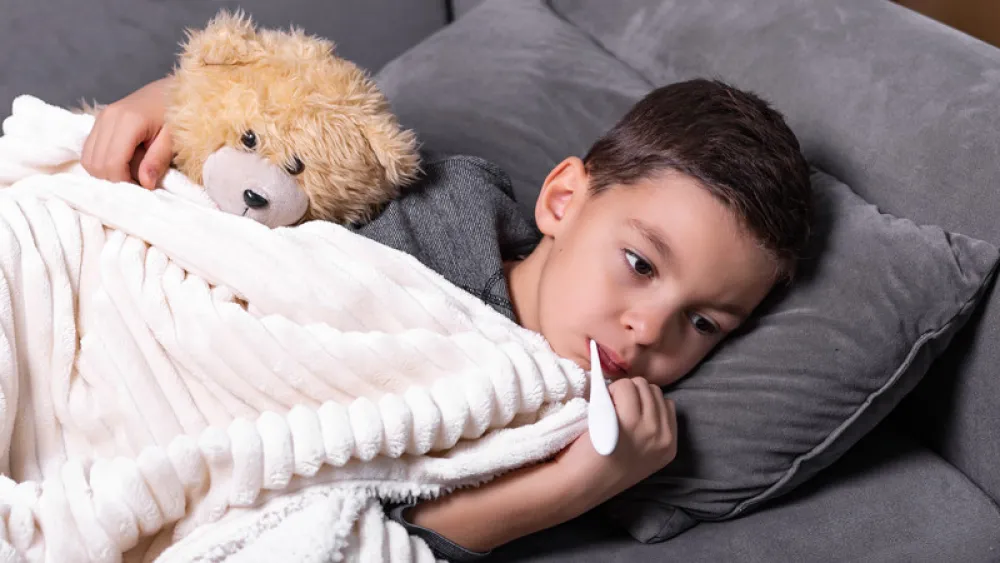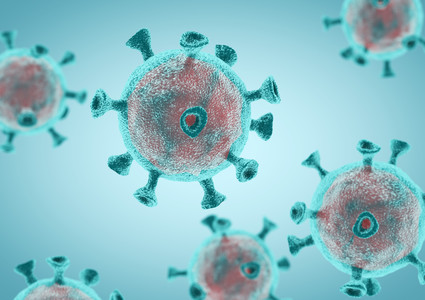Family Health
Yes, Your Children Can Get Coronavirus Disease: What You Need to Know
Published: March 19, 2020

Parents, the good news is you don’t need to panic. Instead, it’s best to be alert, arm yourself with facts and be prepared for the next few months. Below you’ll find answers to frequently asked questions about COVID-19 and how to protect your children.
COVID-19 and Children: FAQs
Q: Why is COVID-19 such a big deal?
A: COVID-19 is a big deal mostly because it’s new – not because of how sick the average infected person gets. No one has immunity, which means it can spread quickly and infect many people at once, making it hard for doctors, nurses and hospitals to provide care for everyone who needs it. This is why the Centers for Disease Control and Prevention (CDC) has been urging social distancing and why schools, restaurants, businesses and activities have all been closed or canceled. We want to slow how quickly the virus spreads.
 Most people who get COVID-19 will be OK after about two weeks of symptoms (cough, fever, fatigue and shortness of breath). However, if you’re over 65 or have chronic medical problems like COPD, smoking, asthma or anything that makes you more likely to get sick, you’re at higher risk of becoming severely ill and may require hospitalization.
Most people who get COVID-19 will be OK after about two weeks of symptoms (cough, fever, fatigue and shortness of breath). However, if you’re over 65 or have chronic medical problems like COPD, smoking, asthma or anything that makes you more likely to get sick, you’re at higher risk of becoming severely ill and may require hospitalization.
Q: Is it true that kids are less likely to catch coronavirus?
A: No! Children are just as likely to catch and spread COVID-19 as adults. Rumors are circulating on social media that children can’t get the disease. This is not true. Instead, children often appear to have mild symptoms or no symptoms at all. Children over the age of 1 are more likely to have mild cold symptoms such as cough, fever or sometimes a runny nose or diarrhea, but they usually bounce back faster than adults.
Infants younger than 1 have typically done well but are at higher risk of more severe illnesses or needing hospitalization. Some children have been shown to have no symptoms of COVID-19 at all when infected. It’s great that they’re not acutely ill. However, children can still spread the virus and infect other people. This is why it’s so important for everyone to practice social distancing.
Q: How do I talk to my kids about COVID-19?
A: Children aren’t immune to worry and anxiety about coronavirus disease. This is also a giant change for their lives. They hear the news and adults talking. They’re talking to each other, too. Acknowledge that their anxiety is normal. Talk to them about how the virus can make some people sick, but if they stay home from school and don’t see their friends for a while, they can help keep as many people healthy as possible. There’s a great comic for kids that helps explain COVID-19 here.
Q: My child has a cough or fever. Should we rush to the doctor?
A: It can be a scary time to have a sick child at home. The good news is that most children will have a mild illness and won’t require medical care. There is no specific medicine for COVID-19. Plan to treat your child as you would with any other cough and cold. Give them children’s acetaminophen to keep them comfortable. If they have a fever, encourage them to drink plenty of fluids, and make sure they rest. They should be seen by a provider if they’re having a hard time breathing, can’t stay hydrated or are having a fever lasting longer than a few days.
Q: Does my child need a COVID-19 test?
A: COVID-19 testing is very limited at this time, so routine testing for children – well or sick – can’t be done. If your child has a cough and fever, they could have COVID-19 or any other virus – it’s still cold and flu season. Remember, there is no specific medical treatment for COVID-19, and most children will get better on their own in one to two weeks. The best action is to treat them as if they’re contagious (as you would for any illness) by keeping them away from other children and encouraging them to wash their hands often, cover their coughs and not share drinks. Call your provider’s office with any questions or concerns.
Q: School is canceled. Can we still have playdates or parties?
A: Unfortunately, no. Both the American Academy of Pediatrics and the CDC recommend children stay home and don’t have playdates, parties or social gatherings of any kind at this time. Schools are closed for a reason – to stop children from being in contact with each other and spreading the virus. Having them instead play with their friends at home, the park or in the backyard defeats the point of this important measure. Children should only spend time with others who live in their own home.
 This doesn’t mean your kids have to stay cooped up. They should get outside every day! They can play outside, ride bikes, go on walks (Take the dog!), kick a soccer ball around or draw with sidewalk chalk. If you encounter others, wave hello, but try to maintain a distance of 6 feet. And help your kids keep in touch with their friends. Being out of school creates a social vacuum for children, and this time can be especially difficult for them. Make sure you let them video chat, talk on the phone and message each other. They can play games online with each other or start a movie at the same time and “watch” it together.
This doesn’t mean your kids have to stay cooped up. They should get outside every day! They can play outside, ride bikes, go on walks (Take the dog!), kick a soccer ball around or draw with sidewalk chalk. If you encounter others, wave hello, but try to maintain a distance of 6 feet. And help your kids keep in touch with their friends. Being out of school creates a social vacuum for children, and this time can be especially difficult for them. Make sure you let them video chat, talk on the phone and message each other. They can play games online with each other or start a movie at the same time and “watch” it together.
Q: Can we still see Grandma and Grandpa?
A: Given that adults over age 65 are at such an increased risk of severe illness if they’re infected with coronavirus, it’s NOT recommended to visit elderly family members who live outside your home. This might be a tough one to swallow, especially if grandparents assist you with child care. But remember that even if your child feels fine, they could still have the disease and spread it to Grandma and Grandpa. If grandparents live in your house, everyone should be washing their hands whenever possible and not touching their faces. If the grandparents want to visit or if your kids want to see them, you have to ask yourself if a visit is worth their health and possibly their lives.
Keep in touch with grandparents over video chat or on the phone. Have them read a book to your little ones, or help your kids make cards for them and write letters. Seniors have been especially advised to stay home and socially distance themselves, so make sure that doesn’t turn into social isolation. They’re going to miss their grandkids as much as your children miss them, so keep in touch as a family.
Getting Through This Together
This is a difficult time for everyone. Families are separated, many are losing their sources of income, and people are getting very sick. But by working together – adults and children alike – we’ll be able to keep people healthy and save lives. We’re all in this together – spread that message far and wide.
More Resources
- Feeling anxious about coronavirus disease? Read our advice.
- Learn more about the necessity of social distancing.
- Read Methodist’s most recent visitor policies.
- Follow Methodist on Facebook, Twitter and Instagram for the latest COVID-19 updates.


